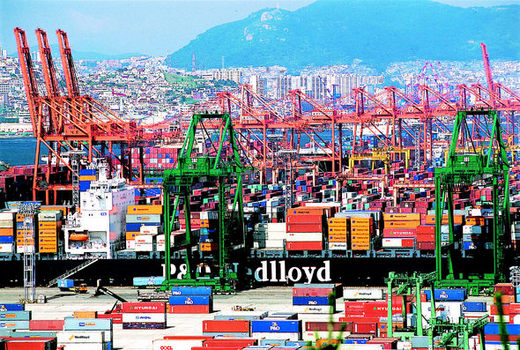 |
Smaller companies say they are bearing the brunt
South Korean exporters--especially small and medium-sized enterprises--are feeling the pinch from an array of unfavorable economic factors, such as a stronger local currency slowing down sales and record-high energy prices, industry watchers said. Suffering from the won’s appreciation against the U.S. dollar for the past several months, making Korean products more expensive on the international market, exporters are seeing their business conditions worsen. Chemical and textile firms remain especially vulnerable to skyrocketing oil prices, with major firms’ second-quarter operating profits plunging around 70 percent when compared with the same period a year earlier."Unlike currency fluctuations, which are not controlled by market psychology, there is no such check in place for crude oil prices," an industry official said, experssing concerns over further hikes in energy costs. Airlines are no execption, as they depend heavily on imported oil for their operation. Though they raised passenger fares in a bid to counter the increased oil prices, they said that a one-dollar rise in crude oil prices per barrel would translate into 40 billion USD in additional annual costs for the industry. "We are redoubling our efforts to cut costs by reducing the weight of airplanes and developing new routes," an official at Korean Air said. "Though such measures are being taken, it is inevitable to see a decrease in profitability." Small and medium-sized companies are being hit the hardest, experts say. An official at a silk-producing company said, "The sense of crisis in the industry has reached a critical state as a result of price hikes for dyes made from oil products... If something is not done, around 70 percent of silk producers in South Korea will go out of business." Some owners of small and medium-sized firms have voiced complaint that they are being forced to bear the brunt of the unfavorable conditions, whereas large conglomerates are more easily weathering the difficult times. The won’s rise against the greenback has also been a curse for many local companies in the past months. Samsung Electronics Co. recorded a 12-percent drop in its operating profit for the second quarter from a year earlier, hit by the the unyielding local currency. "A 100-won decline in the won-dollar exchange rate would lead to a more than 2 trillion won loss in annual profits," Chu Woo-sik, a Samsung Electronics Investor Relations official, said. The bleak business performance by the nation’s largest conglomerate followed last week’s report from LG.Philips LCD Co. of its worst earnings in history. During the April-June period this year, LG.Philips posted an operating loss of 372 billion won. "Without comprehensive measures to keep inflation in check, reflecting the impact from the won’s rise and high oil prices, there will be a sharp contraction of consumer demand," the Korea Institute for Industrial Economics and Trade said.






